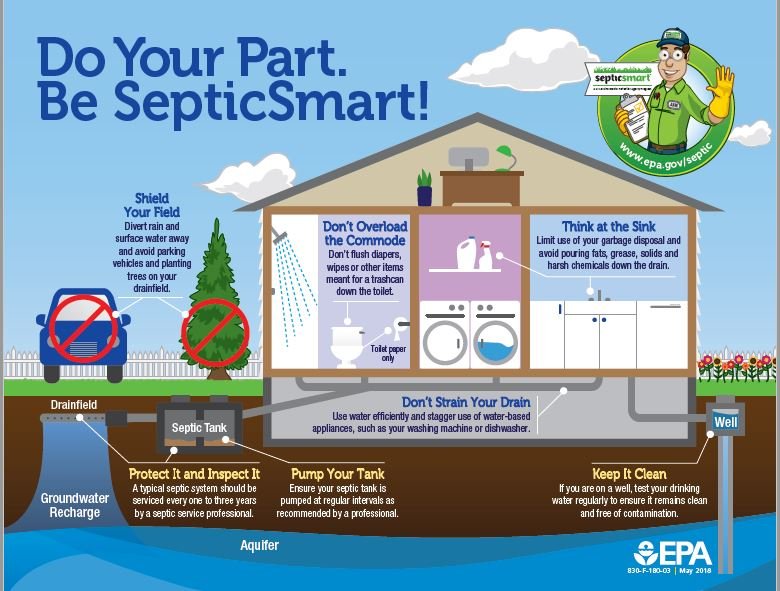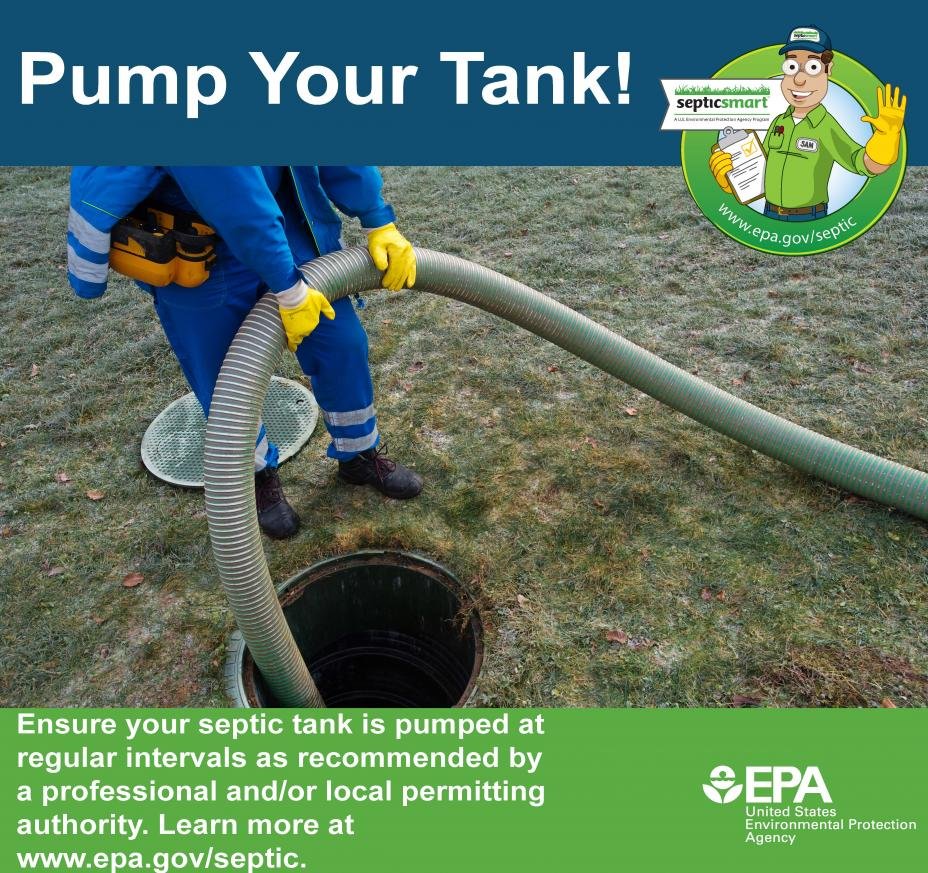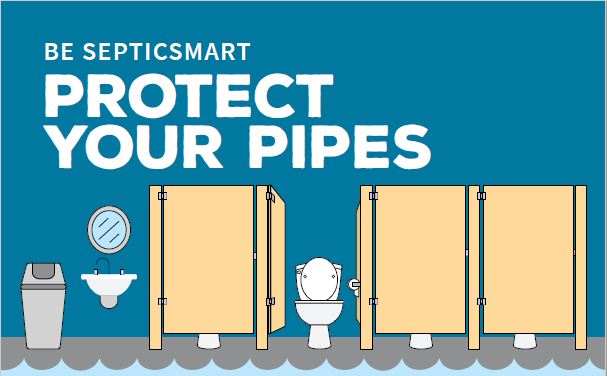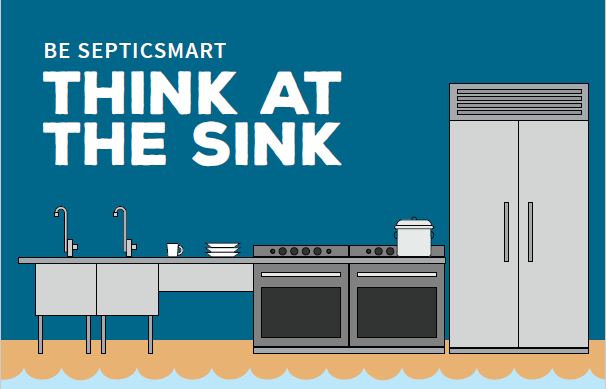Septic System Information
Proper septic system maintenance is critical to help protect the water quality of a lake and will also help extend the life of the septic system. Frequent pumping and regular inspections protects nearby groundwater and surface waters, which in turn, keeps the whole watershed healthy. A septic system that is well maintained can last for 30 to 40 years before needing major work done or replacement.
Why Does a Homeowner Need to Maintain Their Septic System?
- Proper maintenance helps extend the life of the septic system. If it’s not properly maintained, the system will fail and it will cost more in the long run to replace it.
- It helps increase the resale value of your house if regularly maintained.
- When a septic system is not working properly, untreated wastewater becomes a health hazard as seepage leaks into waterbodies. Additional nutrients also feed unwanted plant and algae growth in a lake or pond.
Maintenance is inexpensive; replacement can be very costly.
How to Take Care of Your Septic System Responsibly
-
Have your tank inspected and pumped every 3 years by a septic service professional.
-
Conserve water so you don’t overburden the system.
-
Do not flush anything down the toilet other than toilet paper. Don’t put harsh chemicals, grease, paints, pharmaceuticals, etc., down the drain. They will harm the good bacteria that helps your septic system run properly.
-
Don’t drive or run heavy machinery on the leach field because it can damage the system. Planting trees on the leach field can also have an adverse effect because the roots can interfere with the pipes of the septic system.
-
Have a complete inspection performed if your system is 20+ years old that includes looking at all components (not just the tank) and act on recommendations given in the follow-up report.


How Does a Septic System Work?
The main purpose of a septic system is to treat wastewater from your home (or small business). In New Hampshire, most septic systems include a septic tank and a leach field (or drainfield). All water that goes down a drain flows out to the septic tank through underground pipes. The heavier solids settle at the bottom of the tank and the lighter solids, such as grease and oil, float to the top of the tank. The remaining wastewater then leaves the tank through a series of pipes and disperses into the leach field. It is filtered through the soil, removing any harmful bacteria, and then eventually enters back into the system as groundwater.
Septic System Additives
According to the EPA and NH Department of Environmental Services, the effectiveness of additives has not been determined. Studies show additives have no significant effect on speeding up the decomposition process that occurs with naturally existing microbes found in septic tanks and drain fields. The best way to extend the life of your system is to practice routine maintenance and limit what you dump down the drain as described above.
Need to Find a Septic Professional?
Here is a list of septic system service professionals who service this area. LSPA does not promote or endorse any of the companies listed.
You can also find a professional at Granite State Septic System Designers and Installers (this link provides info on septic system designers, installers, evaluators and maintenance personnel in New Hampshire, however it is not all inclusive).
For More Information, Please Visit the Following Websites:

Click here to download a printable copy of EPA’s “Protect Your Pipes” poster

Click here to download a printable copy of EPA’s “Think at the Sink” poster.





